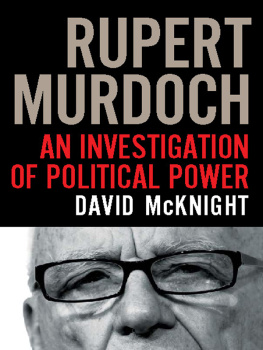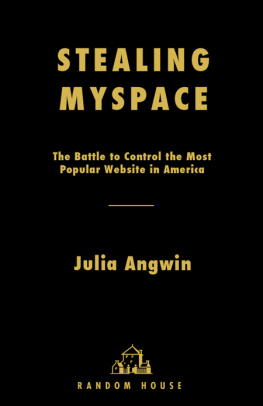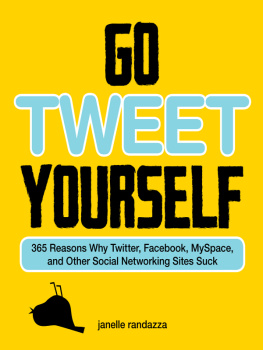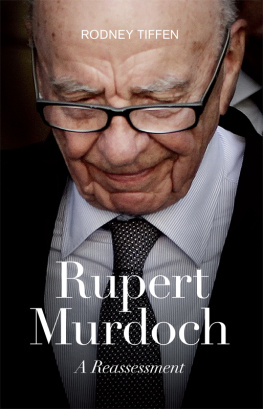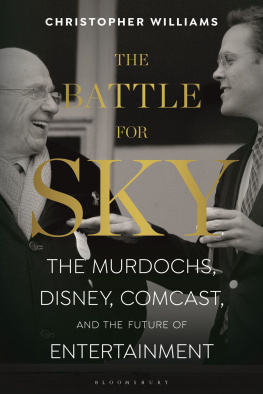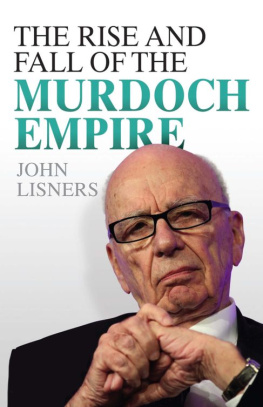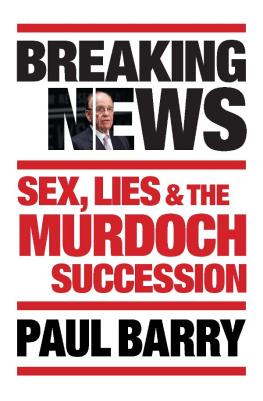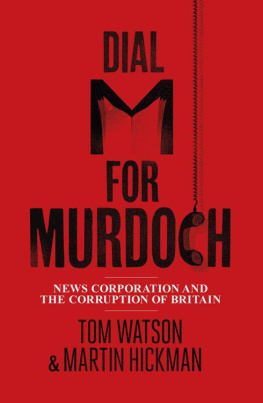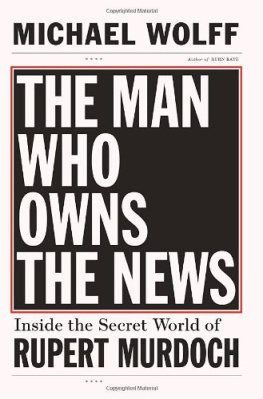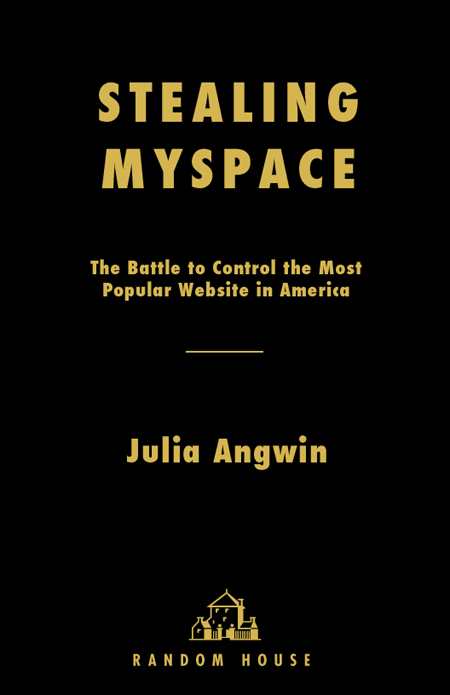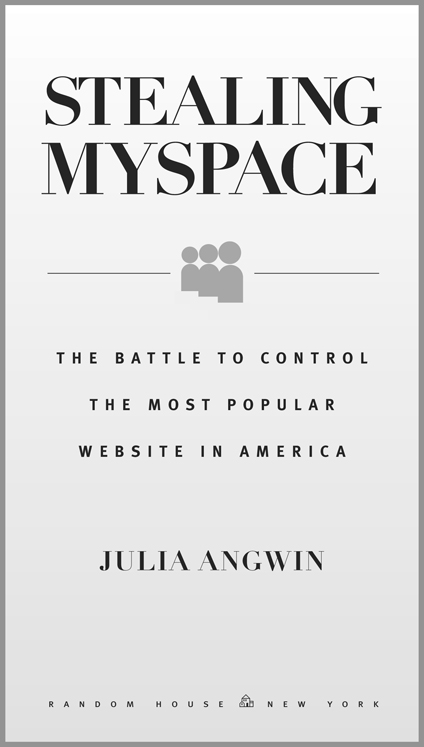Author's Note
This narrative is based on hundreds of interviews conducted during 2007 and 2008. I have tried to reconstruct the key moments in MySpace's history, relying on the accounts of many sources. Because reconstructed dialogue tends to approximate the truth, I have noted where there are significant discrepancies in the memories of the participants.
Many of the people I interviewed did not want to be quoted. I have identified these sources in the endnotes with the phrase a person familiar with the situation. In many cases, I was able to confirm these anonymous accounts with several confidential sources. To protect my sources, however, I have not listed how many people confirmed each incident.
The book also relies heavily on documents, including the following: financial reports filed by MySpace's parent company Intermix at the Securities and Exchange Commission; internal e-mails and documents obtained by the New York Attorney General during its investigation of Intermix; private e-mails between Intermix executives that were viewed by the author; and internal Intermix documents that were viewed by the author. In the event that a document contradicted the memories of a source, I usually chose to rely on the documentary evidence.
The founders of MySpace did not participate in this book. Over the course of a year of reporting and writing, I met repeatedly with various representatives of MySpace and its parent company News Corp. I kept them apprised of my progress through meetings and letters. They never said no to cooperation but continued to delay making a decision. Finally, the book was complete, and they had effectively made their decision: They had never said no to cooperation, but they had never cooperated. Therefore, this book is an unauthorized, but well-documented, account.
Chapter 1
___________________________________
STEALING MYSPACE

R ichard Rosenblatt's heart was pounding with nervous anticipation as he climbed a private staircase on the Fox Studios lot in Los Angeles.
It was the warm afternoon of July 12, 2005. On the Fox lot, the low buildings of the Fox TV and movie soundstages and offices were dwarfed by the high-rise jungle known as Century City. With his deep tan, athletic figure, and casual attire, Rosenblatt looked like he might be on the lot for an audition. But Rosenblatt was there to sell News Corporation chairman Rupert Murdoch on his version of the digital future.
Rosenblatt had arrived early for his meeting. Murdochs office was in a modern glass-and-steel office building that, to many visitors, looked woefully out of place next to the graceful 1930s building that housed the historic 20th Century Fox movie production offices. As he waited in the ground-floor cafeteria, with sunlight streaming in through the sliding glass doors, Rosenblatt tapped out an e-mail on his BlackBerry to a friend: At murdochs going in soon. Friggen nervous.
Finally an aide came to usher him up the back stairs that led from the cafeteria to Murdochs office on the fifth floor. Ross Levinsohn, Murdochs genial head of Internet strategy, was waiting for Rosenblatt outside Murdochs office. Levinsohn put his hand on Rosenblatt's arm. If you want to sell your company to us, now is the time to do it, Levinsohn said.
As soon as Rosenblatt stepped into Murdoch's spacious neutral-toned office suite, he wondered whether he should have worn a suit after all. Against the advice of his colleagues, Rosenblatt had decided to wear his usual business uniform of cargo pants, Vans sneakers, and a light blue short-sleeve button-down shirt. Murdoch, with his receding gray hair and rimless glasses, was waiting in a crisp suit.
Rosenblatt took a seat offered to him on the beige leather couch, introduced himself, and, in his high-pitched voice, launched into a ten-minute recital of all the reasons why Murdoch should buy his Internet company, Intermix Media.
On its own, Intermix was not much of a prize. It owned a bunch of websites offering games like bingo and animated fart jokes that users could e-mail to one another. It was barely profitable. It had been sued by New York attorney general Eliot Spitzer for distributing spyware inside screen savers, screen cursors, and games.
But Intermix also owned a majority stake in a fast-growing website MySpace.comwhich had attracted an impressive 17.7 million visitors the prior month. A consummate salesman, Rosenblatt focused his comments on the potential of adding MySpace's broad audience to complement Rupert Murdochs already enviable empire of top-flight media companies.
Mr. Murdoch, MySpace is the perfect media company, Rosenblatt said. Unlike traditional media companies, MySpace generates free content, through its users; generates free traffic, by its users inviting their friends; and all you have to do is sell the ads!
Gesturing at the four clocks on the wall showing the time in Los Angeles, London, Sydney, and Hong Kong, Rosenblatt said, You have built the most incredible global media company. You have dominated in every area of media, from newspapers to television to film. But on the Internet, you are irrelevant.
This deal will not only make you relevant, it will immediately make you as big a player as AOL or Yahoo online, Rosenblatt said. If you do this deal, I predict you will be on the cover of Wired magazine twelve months from now.
Murdoch said softly in his thick Australian accent, I heard you've been asking for twelve dollars a share. That's a significant premium. Intermix's stock was trading that day at $9.96 a share.
Rich, you've got a reputation for selling when companies are at full value, Murdoch chided gently.
Rosenblatt took a deep breath but didn't back down. After all, he knew that Murdochs archrival, Viacom, was interested in buying Intermix as well.
With all due respect, the company is worth it, he told Murdoch. The price is twelve dollars a share.
Murdoch stood up and said, You got it. Can we get it done by Sunday?
I never go back on my word, Rosenblatt said, shaking Murdochs hand. Subject to my public company duties, I'll deliver you the company by Sunday. He was quickly ushered out of the room.
Rosenblatt was dazed; he couldn't believe that Murdoch had agreed to spend nearly $600 million in a twenty-minute meeting.
There was only one catch: MySpace didn't know it was about to be sold.
Chapter 2
___________________________________
CIRCLE OF FRIENDS

M y Space launched on August 15, 2003, on a blazing hot, overcast Friday afternoon in Los Angeles. MySpace cofounder Chris DeWolfe sat inside his windowless cubbyhole of an office in a building near the Los Angeles International Airport. While the tech guys downstairs were finalizing the computer code for the MySpace website and scanning for bugs in the system, DeWolfe was distracted. He was struggling with pesky issues about spywaresoftware that surreptitiously monitors Web surfers movements and bombards them with related ads.


